Door handle spindles, or mortise bars, are vital components of door handle mechanisms. They transfer the rotational motion of a handle to activate the latch or lock within a door. Despite their straightforward design, spindles vary significantly in type and functionality. This guide delves into spindle classifications by slot type, size, shape, and functionality, while also addressing common issues and practical solutions.
What Are Door Handle Spindles?
A door handle spindle is a metal rod, typically square or round, that connects both sides of a door handle through the latch mechanism. These spindles are essential for smooth handle operation and are tailored to fit specific door systems.
1. Types of Spindles Based on Design
- Plain Square Spindle
A standard square bar is used to connect door handles or knobs. It is commonly face-fixed and transmits rotational force directly to the latch or lock mechanism.They are usually divided into solid and hollow square.Hollow square spindle usually with threading holes


- Positioning Square Spindle
The square bar drive rod, equipped with an angular snap, ensures a tighter handle installation. It is commonly used in indoor security door locks.
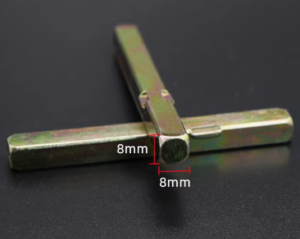
- Grooved or Slotted Spindle
Grooved spindles include half-slotted spindles with one-sided slots for flexible installation and fully-slotted spindles with full-length slots for greater adjustability and compatibility. The slotted square bar ensures a secure attachment of the door handle to the lock body.

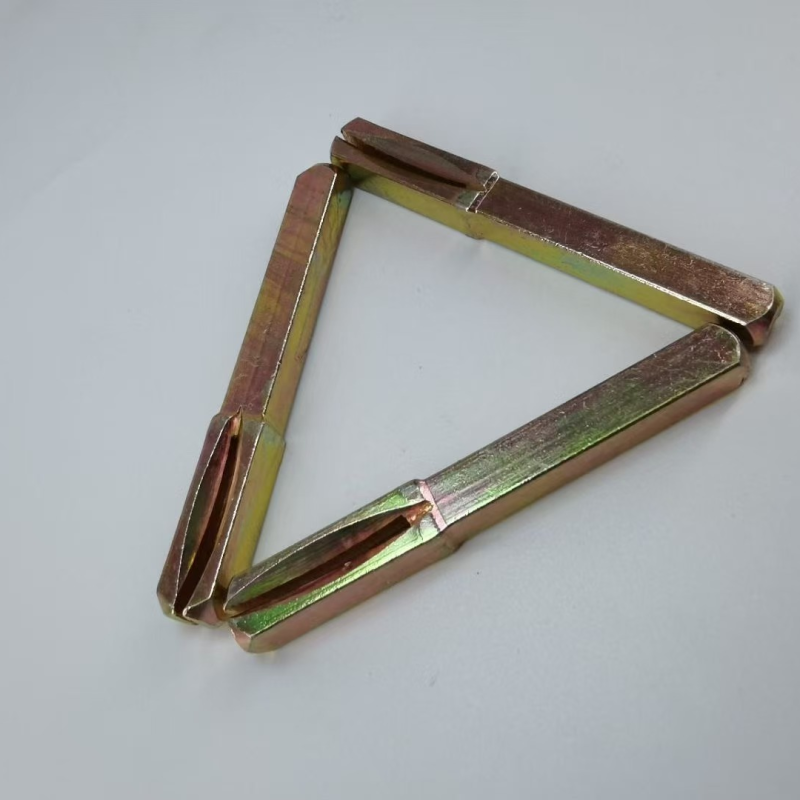
- Threaded Spindle
Equipped with threading at one or both ends, this spindle is primarily used for door knobs. It allows precise adjustment and ensures a secure connection by threading the knobs tightly into place.
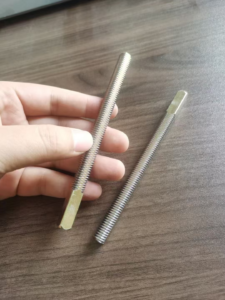
- Drilled or Tapped Spindle
Contains pre-drilled and threaded holes along its length, designed to accommodate long grub screws. This ensures a firm fixing but may provide less flexibility for precise adjustments.
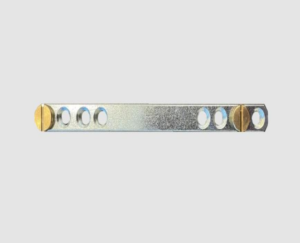
- Swivel or Split Spindle
A two-piece spindle that allows independent rotation of the two sides. Commonly used in night latches or privacy locks, it provides internal and external functionality separately.
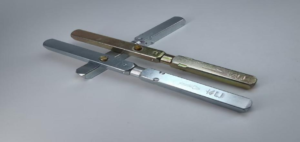
video presentation
- 2-in-1 Square Spindle
A two-in-one square strip commonly used in door handles with screw eyes on the side. It needs to be pushed through during installation.
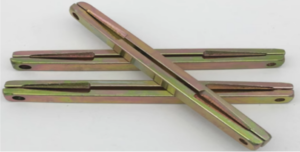
- Non-central spindle
Use a standard spindle with an eccentric hole that allows the grub screw to anchor securely while maintaining necessary stability. Please regard Image
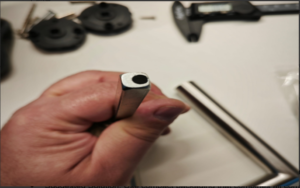
- Axis Spindle
This type of spindle is designed to adapt to various key shapes, including square and round keyholes, to enable the opening and closing mechanism.
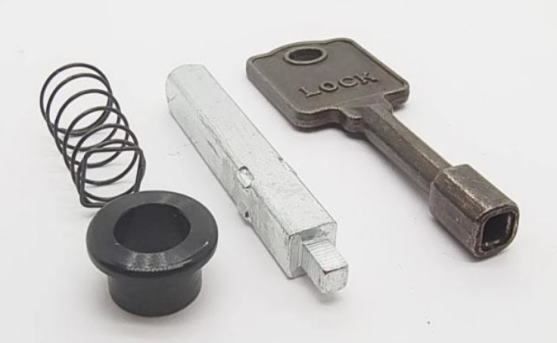

2. Spindle Sizes: Choosing the Right Fit
- Length:
Standard spindle lengths range from 40mm to 200mm, with common sizes of 70mm and 100mm. Our company offers square spindles from 40mm to 170mm, with custom lengths available for different door thicknesses.
- Cross-Section Dimensions:
The industry standard is 8mm square, although 6mm, 7mm and 9mm variants are available based on regional or system-specific requirements. Correct sizing ensures secure installation and seamless operation.
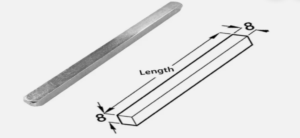
3. Spindle Shapes: Form Meets Function
- Square Spindles:
The most common type is specifically designed to fit square sockets in handles.
- Round Spindles:
Typically found in specialty or vintage door hardware systems.
- Combination Spindles:
Incorporate both square and round sections, offering compatibility with multiple handle types.
4. Functional Classifications of Door Handle Spindles
- Fixed Spindles:
Single-piece designs that provide a permanent, sturdy connection.
- Split Spindles:
Two-piece designs are commonly used in lever-and-lock combinations, allowing independent operation of handles on either side.
- Spring-Loaded Spindles:
Integrated springs return the handle to its original position, reducing sagging and extending durability.
5. Common Problems and Effective Solutions
Even durable spindles can experience issues over time. Here’s how to address them:
- Misalignment:
Often caused by improper installation. This can be corrected by trimming the spindle or adjusting the latch.
- Wear and Tear:
Prolonged use can result in spindle wear necessitating a replacement.
- Compatibility Issues:
Ensure accurate size and type matching when upgrading or replacing spindles.
Routine maintenance and the use of high-quality spindles can significantly extend their lifespan.
Why UMAY Spindles Are the Right Choice
UMAY offers top-tier door handle spindles that adhere to international standards. UMAY products cater to a wide range of door hardware systems and are available in a variety of sizes, types, and finishes. Custom solutions are also available to meet specific needs, ensuring both durability and seamless functionality.
Explore UMAY’s comprehensive range of door handle spindles today and experience the perfect blend of quality and reliability.
Share This Story, Choose Your Platform!
